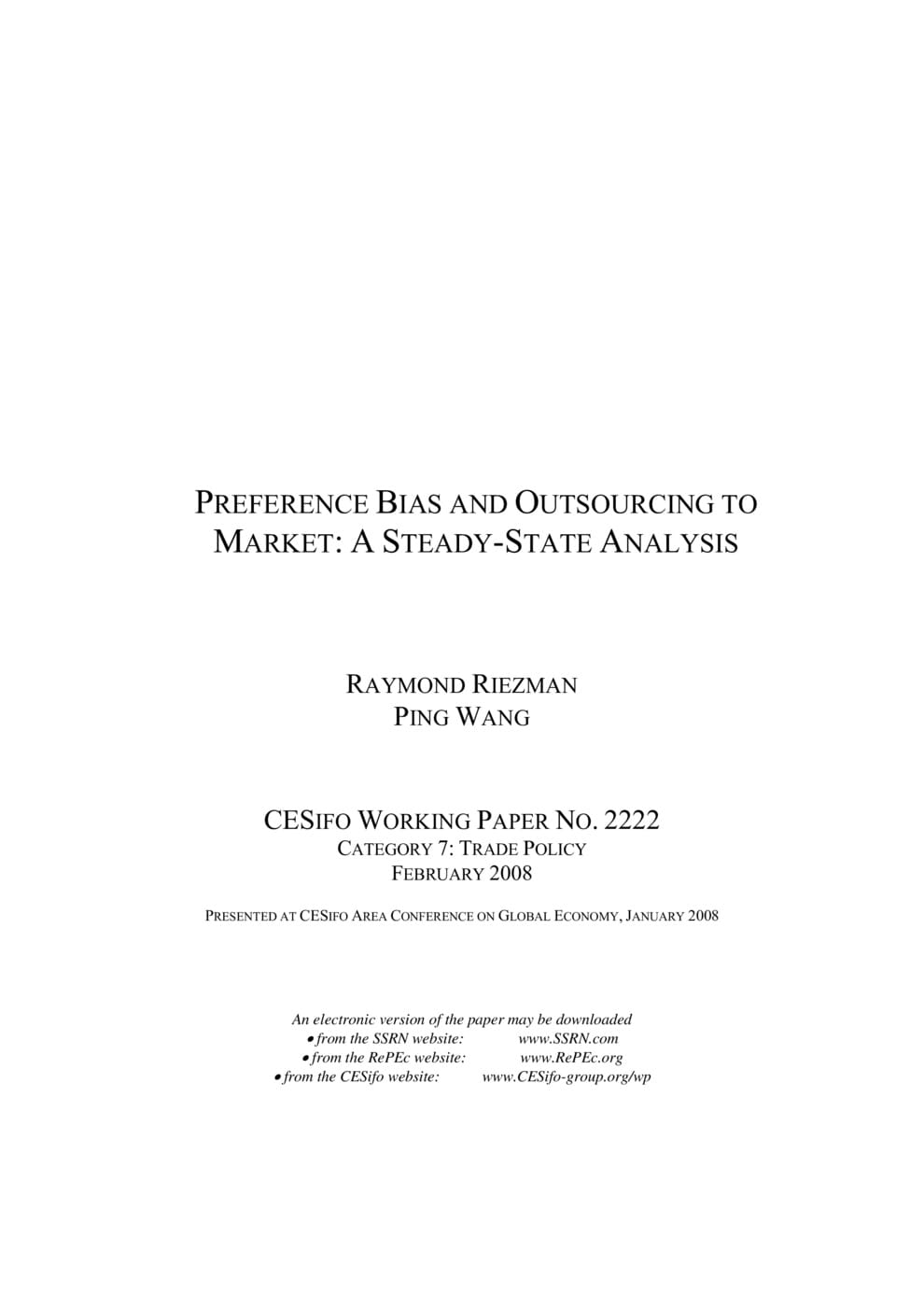Preference Bias and Outsourcing to Market: A Steady-State Analysis
CESifo, Munich, 2008
CESifo Working Paper No. 2222

We analyze a model that focuses on the export/outsource decision. Outsourcing has the advantage of providing better information about local preferences. The disadvantage is that producing in the host country also means using the inferior technology embodied in the local capital. The decision of whether to offer an outsourcing contract weighs these two effects against each other. The host country accepts the outsourcing contract if the higher price they pay for the outsourced good is worth the benefit of consuming a manufactured good closer to their ideal variety. These results suggest that as low income countries develop they become a more attractive destination for outsourcing because the quality of their capital improves and the local market is more lucrative. In addition, the developing low income country finds the outsourcing contract more attractive since their increased demand for the correct variety of the manufactured good increases. This suggests that preference based outsourcing is more likely to occur with higher income host countries.
Trade Policy